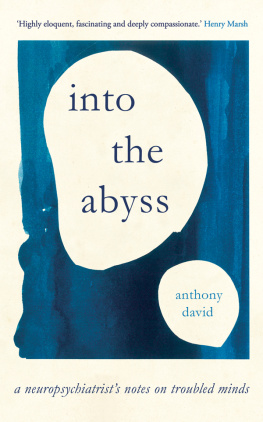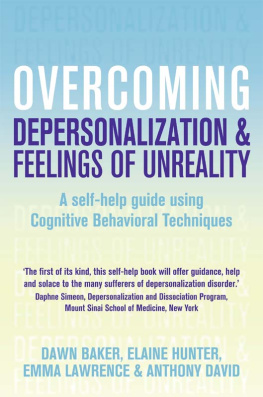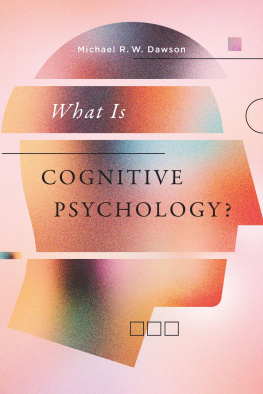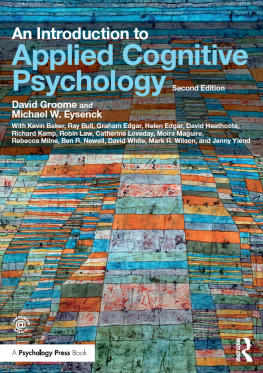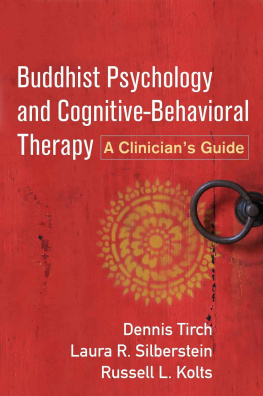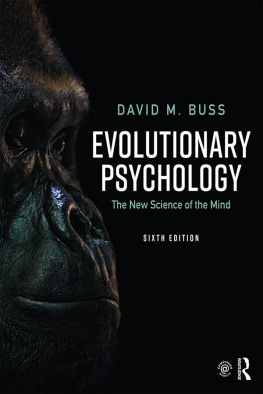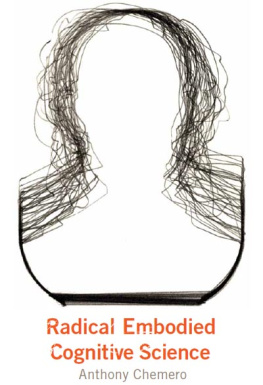Contents
Guide
Praise for
Into the Abyss
A highly eloquent, fascinating and deeply compassionate book about the continuing mystery of mental illness and the cruel fallacy of seeing it as somehow less real and deserving than so-called physical illness.
Henry Marsh CBE, neurosurgeon and author of Do No Harm
I was expecting this to make my brain hurt, but I was immediately hooked on it A witty, humane and fascinating book.
Jo Brand
Some years ago I told the BMJ that the three biggest influences on me were Anthony Clare, Anthony Soprano and Anthony David. The first sadly is no longer with us, the second never existed, but I am delighted to say that the third has just produced the book we knew he alone could. Its a classic warm, erudite, and endlessly fascinating. It reminds me of Oliver Sacks in his prime, and there is no higher praise.
Sir Simon Wessely, Professor of Psychological Medicine at Kings College London
Anthony David brings alive the specialist language of neuropsychiatry the medical domain where the brain meets the mind in a series of erudite, insightful and sympathetic accounts of individual patients and their families. This book is written on the basis of a lifetimes clinical experience but readable by anyone who wants to know more about some of the most challenging and perplexing disorders of consciousness, thought and emotion.
Dr Edward Bullmore, Professor of Psychiatry at the University of Cambridge
What an insightful and heartfelt book. Professor Davids seven in-depth cases expose both the rifts and junctures of the brain and the disordered mind. By emphasizing the subjective inner life of his patients, he provides a welcome antidote to the reductionist thinking of modern medicine while still adhering to sound principles of neuroscience.
Dr Alan Ropper, Professor of Neurology at Harvard Medical School and author of Reaching Down the Rabbit Hole: Extraordinary Journeys into the Human Brain
Few are better suited to tell the story of our mental lives than Anthony David. He has written a beautiful, intimate book of the stories hes seen, one that probes at the nexus of the biological and societal, of kindness and analysis, of objectivity and empathy, of the individual mind and the social forces that shape it. In his shoes, we get to step into the private realm of the psychiatrists office, and often into the lingering questions left in the psychiatrists mind.
Dr David Eagleman, neuroscientist at Stanford University, internationally bestselling author, creator and host of The Brain
This powerful book can help everyone understand our minds better.
Dr Rahul Jandial, author of Life Lessons from a Brain Surgeon
Into the Abyss
A Neuropsychiatrists Notes
on Troubled Minds
ANTHONY DAVID

For my family
Contents
Introduction
Open a newspaper on any day of the week and there will be an article on mental health or more pertinently, ill-health. We read that the issue is affecting more and more people: the young, the old, women, men. Behaviour we used to take for granted now attracts a diagnosis; we and our families are all on pills or in therapy. Opinion pieces either lament the over-diagnosis and the medicalisation of life, or blame it all on modern society. The real problem, they say, is social media, sexual abuse, drugs, poverty, wealth, patriarchy, feminism, religion, lack of religionthe list goes on.
Stepping back from this cacophony, as a person whose job it is to understand such phenomena, a couple of things strike me. While many of these arguments are plausible, they all tend to take a social or political perspective. By contrast, when people talk to their closest friends about troubles in their lives, the natural tendency is to look only at personal experiences, family problems and relationships. Less commonly, in my experience, do people think about physical illness, biochemical processes, genetics or the brain.
We are proud to do so. It shows both our breadth of expertise and rejection of dogma. But applying this model is challenging. Every time we meet a new patient, we must decide which of the three, if any, is most important; otherwise, we are left with a theory that explains everything and nothing.
One way to separate the contribution of genes from the influence of our environment is to study twins who share the same DNA. At the other end of the spectrum, on whole groups of individuals we can look at the effects of war, recession, legalisation of drugs or new treatments. Then there is the more archetypically scientific work carried out in labs: animal experiments or research using brain scanners and other new technologies. But even when such work is of the highest quality, it is usually only applicable as a group average. When I am faced with an individual, a patient, with their own unique constellation of circumstances, even the most powerful science available struggles to answer basic questions: why do they feel like this? What made him do that? Why did this happen to her? At its most extreme, this explanatory gap can feel like a chasm. The twentieth-century philosopherpsychiatrist Karl Jaspers went so far as to describe it as an abyss.
Into the Abyss is therefore not a mountaineering guide, although that is a good metaphor for my work. It suggests something that can be seen but is out of reach. It suggests dangers, darkness below. According to Jaspers, the abyss is an impenetrable country which separates us from understanding the mind of the mad or insane. To me, the word abyss implies a warning and a declaration of impotence. But it is also a challenge.
My first psychiatric hero was R.D. Laing, the radical Glaswegian thinker of the 1960s and 1970s. Initially Laing was an admirer of Jaspers, but later he became convinced he could connect even with the most disturbed people, those whose contact with reality is the least secure. For Laing, the impediment to bridging this chasm was objectivity the very stance that defines the scientific method. I used to fancy myself as a radical and might have followed in Laings footsteps, but it wasnt really me. I suppose I am too fond of the firm footing provided by empiricism and cautious inference. This is what my training in one of the United Kingdoms most eminent psychiatric institutions gave me although it hasnt stopped me at least trying to figure out whats going on in another persons mind.
Jaspers made a useful distinction between a meaningful and causal understanding of human behaviour. Meaningful understanding is about sympathising and empathising, telling stories, working back from the present to our formative experiences, as if they lie on a single, uninterrupted arc. But this powerful and occasionally beautiful way of seeing our lives may also be illusory: our lives are constantly buffeted about by the causal effects of DNA and disease and even chance. To put it another way, there are lots of things happening to us whether we believe in them or not.
Modern psychiatry is right to look to neuroscience for answers to some of the questions around human nature, and as a neuropsychiatrist, that has been my orientation. Yet some neuroscience modern psychopharmacology, for example has a lot to answer for. Neurotransmitters, biochemical messengers in the brain, are often described as the modern equivalent of the ancient humours. Just as the ancient Greeks held that blood and bile drove sanguine and melancholic temperaments, now we have dopamine and serotonin; the former, we are told, gives us motivation, and the latter is responsible for our moods. Then there is the adrenaline rush and the endorphin high and many more.

